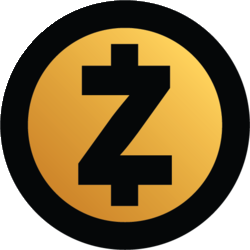Arthur Hayes Urges Zcash Holders to Withdraw from Exchanges Amid Volatility
ZEC/USDT
$444,176,201.48
$223.96 / $203.50
Change: $20.46 (10.05%)
+0.0004%
Longs pay
Contents
Arthur Hayes, the prominent crypto advocate, has urged Zcash holders to withdraw their holdings from centralized exchanges to self-custodial wallets for enhanced security amid rising volatility in the privacy coin. This advice highlights the risks of keeping privacy-focused assets like Zcash on platforms that record user data.
-
Arthur Hayes’ urgent warning targets Zcash volatility, emphasizing self-custody to protect privacy in transactions.
-
Zcash experienced a sharp decline to $430 on Wednesday before recovering to over $537, reflecting market turbulence.
-
As the 24th largest cryptocurrency by market cap, Zcash uses zero-knowledge proofs for private transactions, with data from CoinGecko showing a 10% gain in the last 24 hours.
Discover Arthur Hayes’ critical advice on Zcash exchange holdings and why self-custody matters for privacy coins in 2025. Protect your assets today amid volatility—read expert insights now.
What is Arthur Hayes’ Warning About Zcash Holdings on Exchanges?
Arthur Hayes, the influential former CEO of BitMEX and a vocal cryptocurrency expert, issued a stark warning to Zcash investors on Wednesday, advising them to immediately transfer their holdings from centralized exchanges to self-custodial wallets. This recommendation comes as the privacy coin, known for its advanced encryption features, faces heightened volatility, with prices fluctuating significantly in recent sessions. Hayes stressed the importance of shielding Zcash transactions to maintain the coin’s core privacy benefits, drawing on his extensive experience in digital assets to underscore the vulnerabilities of exchange storage.
How Does Zcash’s Privacy Mechanism Influence Hayes’ Advice?
Zcash operates as a leading privacy coin, utilizing zero-knowledge proofs—specifically zk-SNARKs—to enable users to conduct transactions without revealing sensitive details like sender, receiver, or amount. This cryptographic method verifies transaction validity without exposing the underlying data, setting Zcash apart from transparent blockchains like Bitcoin. Hayes’ call to shield holdings aligns with this technology, as centralized exchanges often retain customer information such as names, addresses, and transaction histories, which could undermine Zcash’s privacy ethos.
Market data from CoinGecko indicates Zcash, ranked 24th by market capitalization, traded above $537 after a 10% surge in the past 24 hours, but it had dipped to a low of $430 earlier that day. This volatility, about 30% below its weekly high and far from its 2016 all-time high of $3,192, amplifies the risks of exchange exposure. Industry experts, including those from blockchain analysis firms, have long cautioned that privacy coins on centralized platforms face regulatory scrutiny and hacking threats, with past incidents like the 2014 Mt. Gox breach serving as stark reminders.
Hayes, who was pardoned by U.S. President Donald Trump earlier this year for prior legal issues, has a track record of bold market commentary. His advice echoes sentiments from other crypto leaders who prioritize self-custody to mitigate risks from centralized entities. For instance, entrepreneur Naval Ravikant, founder of AngelList, has described Zcash as “insurance against Bitcoin,” highlighting its role in countering the transparency limitations of the leading cryptocurrency.
In recent months, Zcash has seen renewed interest due to growing concerns over government surveillance of Bitcoin transactions. Bitcoin’s public ledger allows for potential tracking, prompting users to explore privacy alternatives like Zcash. Hayes himself speculated on Zcash’s price movements in a tweet the previous day, weighing whether to increase his position, which adds context to his proactive stance.
The broader cryptocurrency ecosystem has witnessed increasing advocacy for self-custody, especially for privacy-focused assets. Centralized exchanges, while convenient, are prime targets for cyberattacks, with reports from cybersecurity firms like Chainalysis noting billions in losses from hacks over the years. Hayes’ warning serves as a timely reminder for Zcash holders to prioritize security in an era of regulatory evolution and market uncertainty.
Frequently Asked Questions
What prompted Arthur Hayes to warn about Zcash on centralized exchanges?
Arthur Hayes issued the warning amid Zcash’s recent price volatility, which saw the coin drop to $430 before rebounding above $537. Citing the privacy coin’s unique features, he urged over 766,000 followers on X to withdraw from platforms like Coinbase and Binance to self-custodial wallets, emphasizing the need to shield transactions for optimal privacy protection.
Why is self-custody recommended for privacy coins like Zcash?
Self-custody allows Zcash users to fully leverage the coin’s zero-knowledge proof technology, keeping transaction details private without exchange oversight. Centralized platforms log user data, which conflicts with privacy goals and exposes assets to hacks or regulatory demands—making personal wallets a safer choice for maintaining anonymity in everyday crypto use.
Key Takeaways
- Heightened Volatility in Zcash: The privacy coin slid to $430 mid-week before climbing over 10% to $537, underscoring the need for secure storage amid swings about 30% off recent highs.
- Self-Custody as Best Practice: Arthur Hayes and industry experts advocate moving Zcash to personal wallets to preserve privacy through shielding, avoiding the data-tracking pitfalls of centralized exchanges.
- Growing Relevance of Privacy Coins: With concerns over Bitcoin’s traceability, assets like Zcash offer essential protection—act now by reviewing your holdings and implementing robust security measures.
Conclusion
Arthur Hayes’ timely warning on Zcash exchange holdings reinforces the critical importance of self-custody for privacy coins in a volatile 2025 market landscape. By leveraging zero-knowledge proofs, Zcash continues to provide a vital shield against transparency risks inherent in assets like Bitcoin. As regulatory pressures mount and cybersecurity threats persist, investors are wise to heed such expert counsel, securing their digital assets for long-term resilience and privacy assurance.
Comments
Other Articles
Bitcoin Price Analysis: Will the Uptrend Continue?
3/1/2026
Ethereum 2.0 Update: How Will It Affect the Crypto Market?
2/28/2026
The Coming of Altcoin Season: Which Coins Will Stand Out?
2/27/2026
DeFi Protocols and Yield Farming Strategies
2/26/2026
